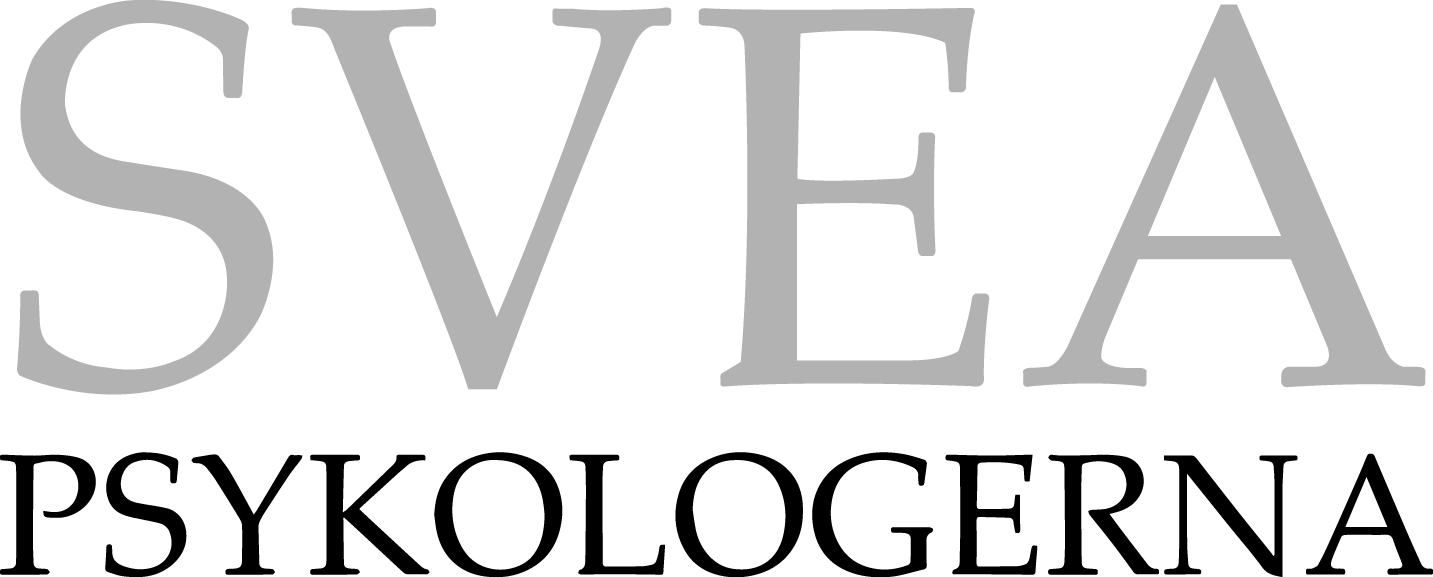CBT - Cognitive behavioral therapy
CBT - an effective treatment method
CBT is a structured and time-limited form of therapy. Treatments are based on active collaboration between therapist and client. CBT has strong research support and is considered a very effective treatment method for many types of problem areas. Characteristics of a CBT treatment are that it aims to change behaviors, is action- and goal-oriented, focuses on the situation here and now, has a scientific evaluation of the methods and changes in line with new research findings.
Cognitive Behavioral Therapy (CBT) is a form of psychological therapy based on the theory that our thoughts, feelings and behaviors are related and influence each other. CBT aims to help individuals understand and change their negative thought patterns and behaviors to improve their mental health
CBT at Sveapsykologerna in Stockholm, Gothenburg and Malmö
Sveapsychologists specialize in the treatment of depression, anxiety, phobias, panic disorder, obsessive-compulsive disorder, health anxiety (so-called hypochondria), social anxiety, sleep problems, addiction, stress and fatigue problems, relationship problems, behavioral problems, lifestyle changes, existential issues and lack of self-esteem. We have many years of experience in treating all psychological conditions in adults, children and adolescents. Sveapsychologists' therapists are used to working with people from different cultures and social environments.
Our clinics are centrally located for CBT in Stockholm, Gothenburg and Malmö. With us you always get fast help, trained psychologists and the opportunity for effective treatment.
Change your thinking patterns and live a more meaningful life
CBT is an effective and evidence-based therapy for managing anxiety, depression, phobias and other mental health problems. Start your journey towards better mental health today.
CBT - an overview
Cognitive behavioral therapy (CBT) is an umbrella term that consists of several different approaches. Below is an overview of the different waves of CBT.
First wave CBT
First wave CBT, also called behaviorism, is more behavioral. It looks at internal and external behaviors and what reinforces and extinguishes these behaviors. For example, behavioral activation, which is effective in depression, comes from behaviorism.
Second wave CBT
Second-wave CBT is cognitively oriented. It places more emphasis on thoughts: basic assumptions and life rules. These are the glasses the person wears when looking at themselves, the world, life and the future. These have been influenced by past experiences and whether the person has had their basic needs met, such as security, love, affirmation and guidance.
Third wave CBT
Third wave CBT, which includes ACT and mindfulness. This form of therapy has taken some elements from Zen Buddhism and existential therapy. Third Wave CBT is transdiagnostic, which means it can be used with clients who have multiple diagnoses at the same time. This is also known as comorbidity, or co-morbidity. This form of therapy also addresses existential elements, such as meaning and purpose in life and core values.
Frequently asked questions about CBT
-
CBT is an evidence-based psychological therapy that aims to help individuals understand and change their negative thought patterns and behaviors to improve their mental health. The therapy is structured and time-limited and is based on an active collaboration between therapist and client. CBT has been shown to be effective for a wide range of mental health problems, including depression, anxiety, phobias and addictions.
-
There are several different approaches to CBT, including behaviorism, cognitivism and third wave CBT which includes ACT and mindfulness. Behaviorism focuses on behaviors and how they are affected by rewards and punishments, while cognitivism focuses on thought patterns and how they affect emotions and behaviors. Third wave CBT, including ACT and mindfulness, focuses on accepting and changing negative thoughts and feelings while focusing on the present and the person's core values.
-
BT has many benefits, including:
CBT is evidence-based and has been shown to be effective for a wide range of mental health problems.
CBT is structured and time-limited, so it is easy to plan and follow the treatment.
CBT is based on an active collaboration between therapist and client, which makes the client more involved and responsible for their own treatment.
CBT teaches the client tools and techniques that can be used to manage mental health problems even after the treatment has ended.
-
CBT is suitable for a variety of individuals suffering from mental health problems such as depression, anxiety, phobias, obsessive-compulsive disorder, addiction, stress and fatigue issues, relationship problems.
CBT is also suitable for people who wish to understand and change their negative thinking patterns to improve their mental health. CBT is a flexible therapy and can be adapted to the specific needs of the individual. It is suitable for both adults and children and can be used to treat a range of mental health problems.


